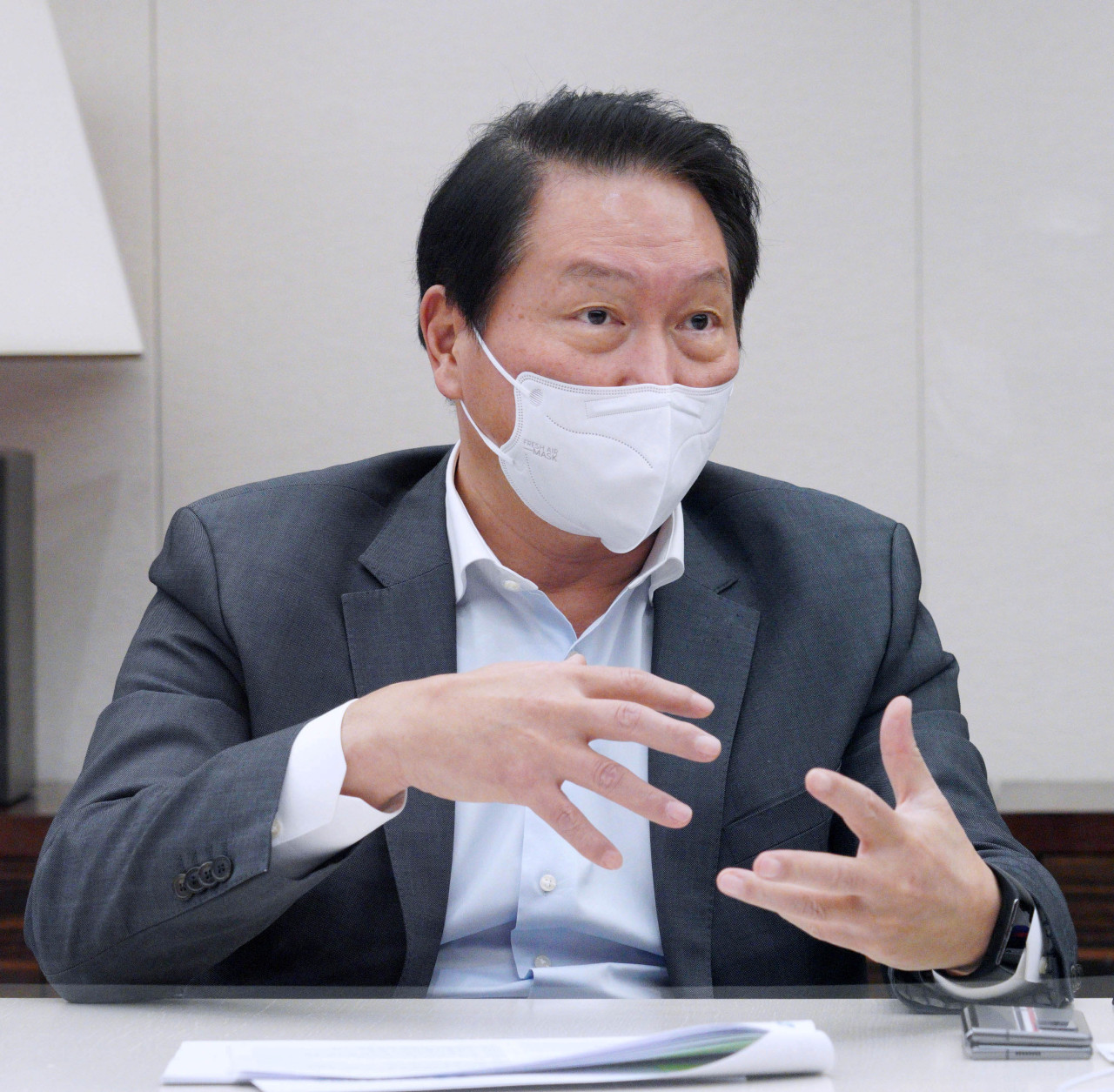SK Group Chairman Chey Tae-won, who doubles as head of the Korea Chamber of Commerce and Industry, has called for a justifiable and practical approach to dealing with the governance structure issue of South Korean conglomerates.
“Samsung had a leader who jumped into semiconductor (business) and overcame difficult challenges. Without such structure, who could have had managed such risks?” the KCCI chief told reporters during a year-end conference held Wednesday in Seoul.
“We will need more diverse governance structures that can be developed in a justifiable and practical way.”
The 61-year-old leader’s remark is translated as indirect support to Samsung’s management system that relies heavily on the decisions of its top leader.
It was late Samsung Group Chairman Lee Kun-hee who started the chip business in the late 1970s despite strong opposition at the time. Now, Samsung Electronics’ de-facto leader Lee Jae-yong is carrying on his father’s legacy. Lee, who was released on parole in August, finalized a whopping $17 billion investment to build a new chip plant in Texas last month, a decision that had been put on hold due to his time in jail from January through July for bribing ousted former President Park Geun-hye.
“Bringing change or moving forward can’t be done by constant criticism and punishment,” Chey said.
Chey further urged the government to rethink its role from the ground up, stressing that it should intervene less and let private companies address social problems, which have become too complex for the government to handle alone.
“From my perspective, a company is a group of people that solves problems with efficiency. Until now, that efficiency has been used for only making money. If there are incentives, this efficiency can be redirected to solve social problems. (The government) can’t expect companies to do so in goodwill,” Chey said.
The government’s failure to address social problems is best represented in the way it deals with climate change, Chey stressed.
“The government’s one-way policy that imposes more fines, taxes to those emit more carbons isn’t enough. Now, the government is saying, ‘You there! Cut (carbon emissions) this much, or you’ll get fined. You figure out how.’ This is problematic. If we put our heads together and come up with more innovative ideas to reduce carbon, it could be done in a far more constructive manner,” Chey said.
Asked on his outlook for 2022, the KCCI head said that South Korea’s economic situation will be not bad “if” the nation’s health system holds up.
“Despite COVID shutdowns, exports were good because Korea’s manufacturing industry wasn’t shut down compared to other countries’. The impact of the Omicron variant remains to be seen, but if Korea follows suit of the US and the UK, where infections are rising, the country can very much face difficulties,” Chey said.
Regarding the global chip shortage, Chey said that he didn’t see it coming, and it will take two years for the supply to catch up with the demand. But what troubled him most was supply chain risks promoted by the US-China tensions.
“In the past, the whole world together shared supply chains, but now, supply chains are divided by which side you take. There are changes amid conflict between the US and China,” Chey said.
As Korea nears the presidential election in a little more than three months, the KCCI chief asked candidates to make investments for software infrastructure once they get elected.
“Software-based public investments are essential. In Korea, telecommunication network is rolled out pretty well, but there is no data to use. Without data, we can’t understand why K-pop and K-culture are booming and what it will take to make it happen again. Due to lack of infrastructure, Korea can’t conduct data-based businesses compared to others,” Chey said.
By Kim Byung-wook (
kbw@heraldcorp.com)







![[Today’s K-pop] Blackpink’s Jennie, Lisa invited to Coachella as solo acts](http://res.heraldm.com/phpwas/restmb_idxmake.php?idx=644&simg=/content/image/2024/11/21/20241121050099_0.jpg)
